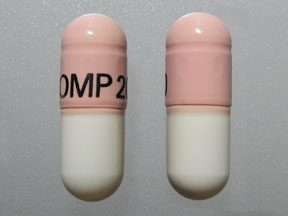
Omeprazole Magnesium Coupons & Savings Card – Discount Prices from $9.97
Generic for: Prilosec otc, Prilosec, Kp omeprazole magnesium
My prescription
Edit
20.6 (20 Base)MG, Omeprazole Magnesium (30 Capsule Delayed Releases)
Select pharmacy

Albertsons
$9.97
COUPON PRICE
Walgreens
$15.00
COUPON PRICEOmeprazole Magnesium savings card
Show this card to your pharmacist
Albertsons
$9.97
BIN
ID
PCN
GRP
019876
LHB4EE7BAE
CHIPPO
LHX
Powered by
More prescriptions for heartburn
More prescriptions for heartburn
Price history for Prilosec (brand) & Omeprazole Magnesium (generic)
30 Capsule Delayed Releases, 20.6 (20 Base)MG
Average retail price for Prilosec
Average retail price for Omeprazole Magnesium
Average SaveHealth price for Omeprazole Magnesium
Our price history data is based on aggregated prescription data collected from participating pharmacies in America. Our prescription data updates daily to reflect the latest price changes. If you notice a missing data point, it means there wasn't sufficient data available to generate a monetary value for that date.
We analyzed Omeprazole Magnesium prices for (20.6 (20 Base)MG, 30 Capsule Delayed Releases) over the last 12 months. The average retail price was $18.00, while the average price using the SaveHealth discount card was $11.00. That's a savings of approximately 38.89% when using our Omeprazole Magnesium coupon.
Compared to the generic version, Prilosec had an average price of $18.02 over the same time period. With the SaveHealth savings card, Omeprazole Magnesium is 38.96% cheaper on average than Prilosec.
*Retail prices are based on pharmacy claims data, and may not be accurate when we don't have enough claims.
Omeprazole Magnesium dosage forms
Dosage Quantity Price from Per unit 20.6 (20 Base)MG 30 Capsule Delayed Releases $9.97 $0.33 20.6 (20 Base)MG 14 Capsule Delayed Releases $8.65 $0.62 20.6 (20 Base)MG 28 Capsule Delayed Releases $9.80 $0.35 20.6 (20 Base)MG 42 Capsule Delayed Releases $10.95 $0.26
| Dosage | Quantity | Price from | Per unit |
|---|---|---|---|
| 20.6 (20 Base)MG | 30 Capsule Delayed Releases | $9.97 | $0.33 |
| 20.6 (20 Base)MG | 14 Capsule Delayed Releases | $8.65 | $0.62 |
| 20.6 (20 Base)MG | 28 Capsule Delayed Releases | $9.80 | $0.35 |
| 20.6 (20 Base)MG | 42 Capsule Delayed Releases | $10.95 | $0.26 |
